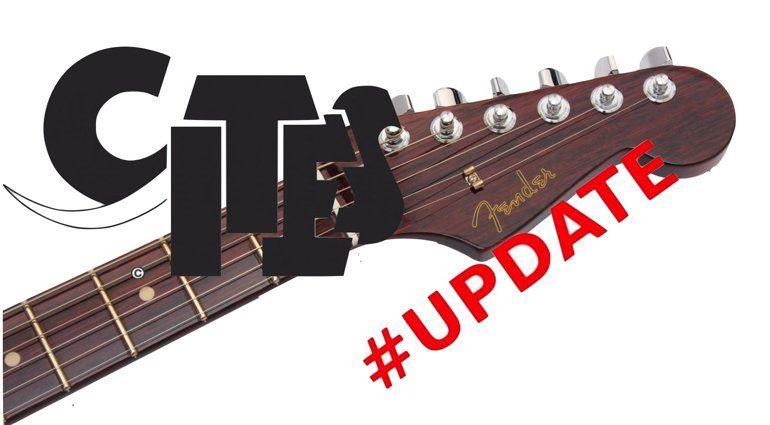Finally, an official end date for the CITES regulations on rosewood for the music industry. From the day it was implemented, CITES caused the music instrument industry nothing but headaches. Musicians ran the risk of losing their guitars (or at least parts of them) to customs officers. Now it's finally over and the guitar world can finally breathe a sigh of relief.
This means also from 14.Dec.2019 there is no more problem to ship guitarparts made of Madagascar/East Indian Rosewood and Cocobolo anymore!
CITES vs. Rosewood: The turnaround
After a nearly two-year CITES ban on the movement of rosewood crossing international borders, unless accompanied by the relevant paperwork, it looks like the ban has finally been overturned.
According to media reports, trading restrictions on rosewood have been revised by the relevant CITES committee allowing all 'finished' instruments with rosewood, all their parts and spares, to be traded freely. This ends the restrictions previously in place for musical instruments, which will now apply only to the movement of rosewood as a raw material across international borders.
Common Sense
That makes sense to us. Why would you want to confiscate or destroy instruments legitimately built using rosewood, especially vintage ones or ones where the wood had been sourced in a way that is environmentally friendly? According to NPR, the 2017 restrictions cost the MI industry tens of millions of dollars without a big impact on rosewood conservation. That's quite a big economic effect on the companies involved.
Musicians and Industry freedom
This new ruling will mean that musicians can travel freely without fear of their beloved instruments getting confiscated or destroyed. But I hope the musical instrument industry will start to think more carefully about what woods they use and how it will impact the environment going forward.



